2013 Update & Next Up in 2014
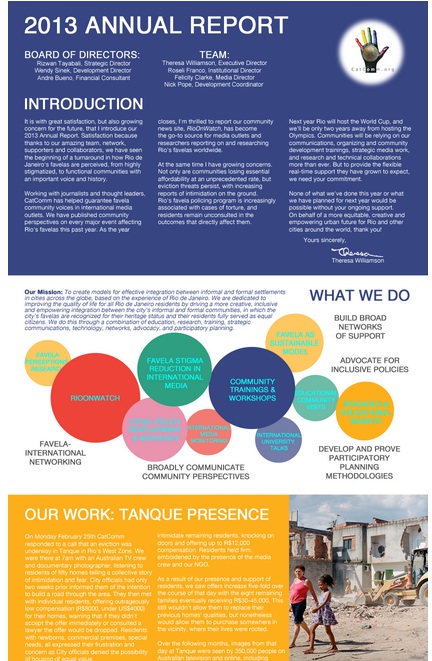 December 31, 2013 — As 2013 draws to a close, please check out our 2013 Annual Report that summarizes our work and successes in 2013, then take a more detailed look at the specific projects we committed ourselves to this year, below.
December 31, 2013 — As 2013 draws to a close, please check out our 2013 Annual Report that summarizes our work and successes in 2013, then take a more detailed look at the specific projects we committed ourselves to this year, below.
Please also consider pledging a monthly contribution to CatComm. If everyone reading this became a monthly supporter, even at just a dollar each month, we could double our work in 2014, when Rio’s communities need us more than ever. In fact, guaranteed support is even more valuable than the dollar amount of that support, because it allows us to plan more effectively while also respond as needed on the ground. We would also love your input on our progress.
Here are the highlights from 2013:
- Launched New CatComm Site: This year Catalytic Communities launched this dynamic new website, with features and resources for communities, researchers and reporters. Built on a WordPress theme kindly donated by Press 75, the new CatComm.org documents our work, outlines our vision for Rio, shares community organizing information and tools and provides essential context for those interested in Rio and its favelas today.
- RioOnWatch: CatComm’s news site to bring visibility to community perspectives on the urban transformations in Rio until 2016, RioOnWatch.org has continued to grow both in reach and quality of output this year. We published 273 articles, 27 by favela-based journalists and activists, and our social media reach has almost doubled from 29,977 in December 2012 to 58,899 last month, peaking at a groundbreaking 131,043 in June during the protests. RioOnWatch subtitled the short documentaries Marked Homes, Me, Favela, and Realengo, Letting Off Steam.
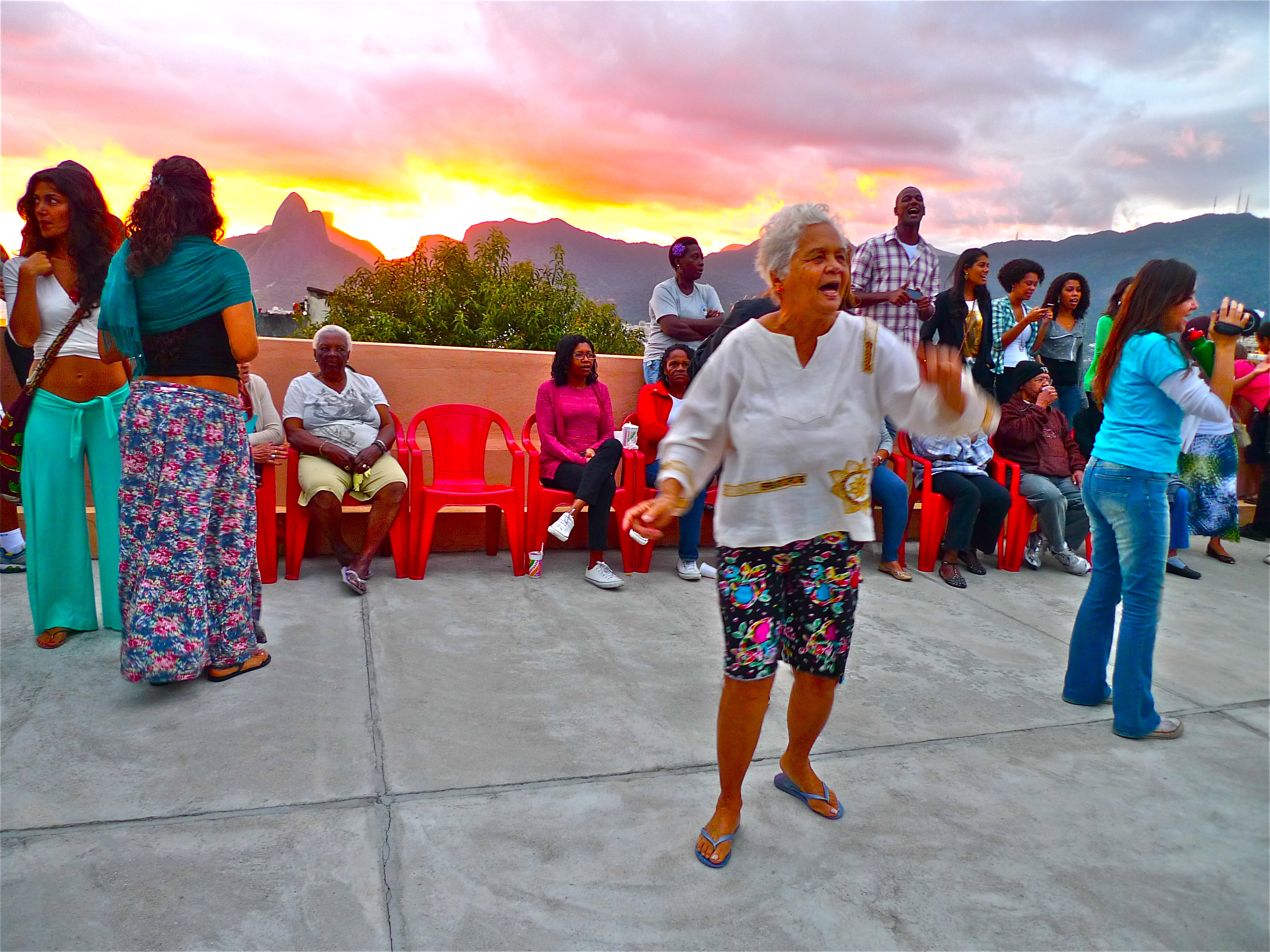 International Perceptions Survey & Media Monitoring: Building on our previous research, in April and May this year CatComm volunteers surveyed over 750 people in four cities–Rio de Janeiro, San Francisco, Brisbane and London–to discover how people perceive favela communities and their residents. Corroborating data from previous years, across all locations it was found that those who had visited a favela personally held dramatically more positive views than otherwise. We also continued monitoring the way favelas are represented in the international media, with an extensive tracking of the language and perspectives used, and publishing monthly digests listing international coverage of favelas. At the end of the year we published an editorial called Worst International Reporting on Rio’s Favelas: 2013.
International Perceptions Survey & Media Monitoring: Building on our previous research, in April and May this year CatComm volunteers surveyed over 750 people in four cities–Rio de Janeiro, San Francisco, Brisbane and London–to discover how people perceive favela communities and their residents. Corroborating data from previous years, across all locations it was found that those who had visited a favela personally held dramatically more positive views than otherwise. We also continued monitoring the way favelas are represented in the international media, with an extensive tracking of the language and perspectives used, and publishing monthly digests listing international coverage of favelas. At the end of the year we published an editorial called Worst International Reporting on Rio’s Favelas: 2013.
- Local Coverage and International Comment on the Brazil Protests: The massive protests which swept Brazil in June and July made headlines the world over. CatComm was sought out to provide information and comment by Le Monde, Urb.Im, The Nation, The Telegraph, WBEZ Chicago, Metro, and Counterpunch. Our executive director Theresa Williamson wrote an opinion piece for the New York Times Room for Debate and we provided extensive on-the-ground coverage of community perspectives, favela participation, social media influence and police violence in protests on RioOnWatch, with one article on Vidigal and Rocinha’s protest re-published by the New Internationalist. They were record-breaking months for CatComm with an estimated social media reach of 127,000 and twenty published articles in July.
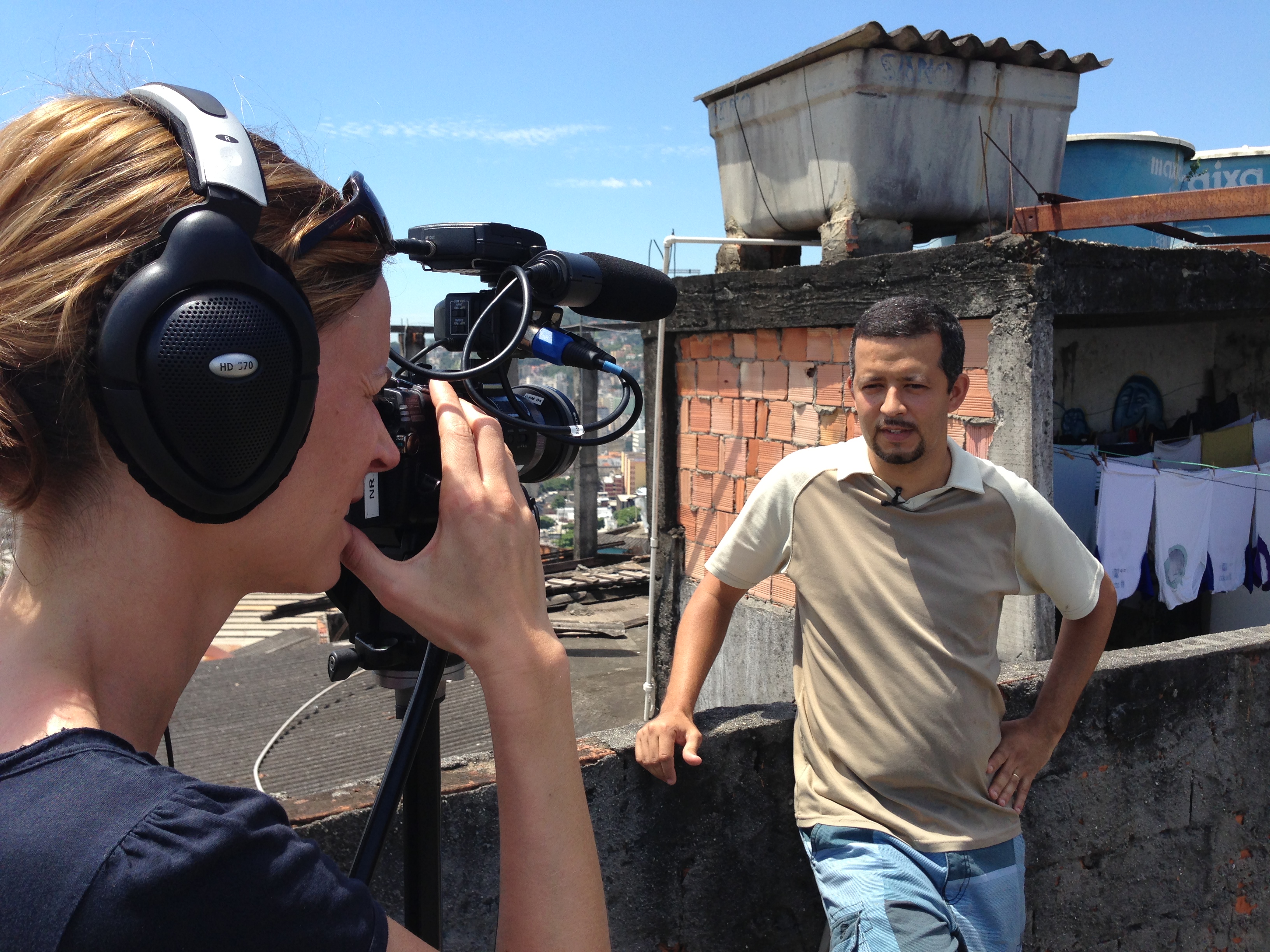 Shaping the International Debate Through Media: International journalists covering Rio de Janeiro and the favelas have sought CatComm out throughout the year for information, interviews and support, and we’ve strategically used these opportunities to promote favela communities’ efforts, push for participatory policies and encourage journalists to be nuanced and accurate in their reporting. Examples this year, as well as during the protests, include taking TV crews from Germany, Finland and Australia to cover evictions, ABC Nightline to cover police brutality in Rocinha and Maré, and supporting journalists from USA Today, The Independent, Fox News Latino, the BBC and TIME in their coverage of the Pope’s visit to Manguinhos. In November we celebrated as CatComm’s vision made it onto the front page of The New York Times when architecture critic Michael Kimmelman published the feature ‘A Divided Rio, Overreaching for the World.’ Supported by several members of CatComm’s team, Kimmelman reported on Rio’s transformation advocating for favela qualities.
Shaping the International Debate Through Media: International journalists covering Rio de Janeiro and the favelas have sought CatComm out throughout the year for information, interviews and support, and we’ve strategically used these opportunities to promote favela communities’ efforts, push for participatory policies and encourage journalists to be nuanced and accurate in their reporting. Examples this year, as well as during the protests, include taking TV crews from Germany, Finland and Australia to cover evictions, ABC Nightline to cover police brutality in Rocinha and Maré, and supporting journalists from USA Today, The Independent, Fox News Latino, the BBC and TIME in their coverage of the Pope’s visit to Manguinhos. In November we celebrated as CatComm’s vision made it onto the front page of The New York Times when architecture critic Michael Kimmelman published the feature ‘A Divided Rio, Overreaching for the World.’ Supported by several members of CatComm’s team, Kimmelman reported on Rio’s transformation advocating for favela qualities.
- Favela as a Sustainable Model: Continuing with our long-term program to expand awareness about favela qualities as they relate to the potential favelas offer as models of sustainable and vibrant community development, in 2013 CatComm partnered with Solar CITIES to lay the groundwork for community-based sanitation workshops to take place in three Rio favelas identified by CatComm in 2014, when biodigesters will be installed by local residents. During the rains that plagued Rio in December, we launched the group Rede Favela Sustentável, to begin an active online discussion into favela sustainability attributes and how to foster them moving forward. And finally, our award-winning 2012 film Favela as a Sustainable Model was chosen for the Cinema Planeta film festival in Mexico.
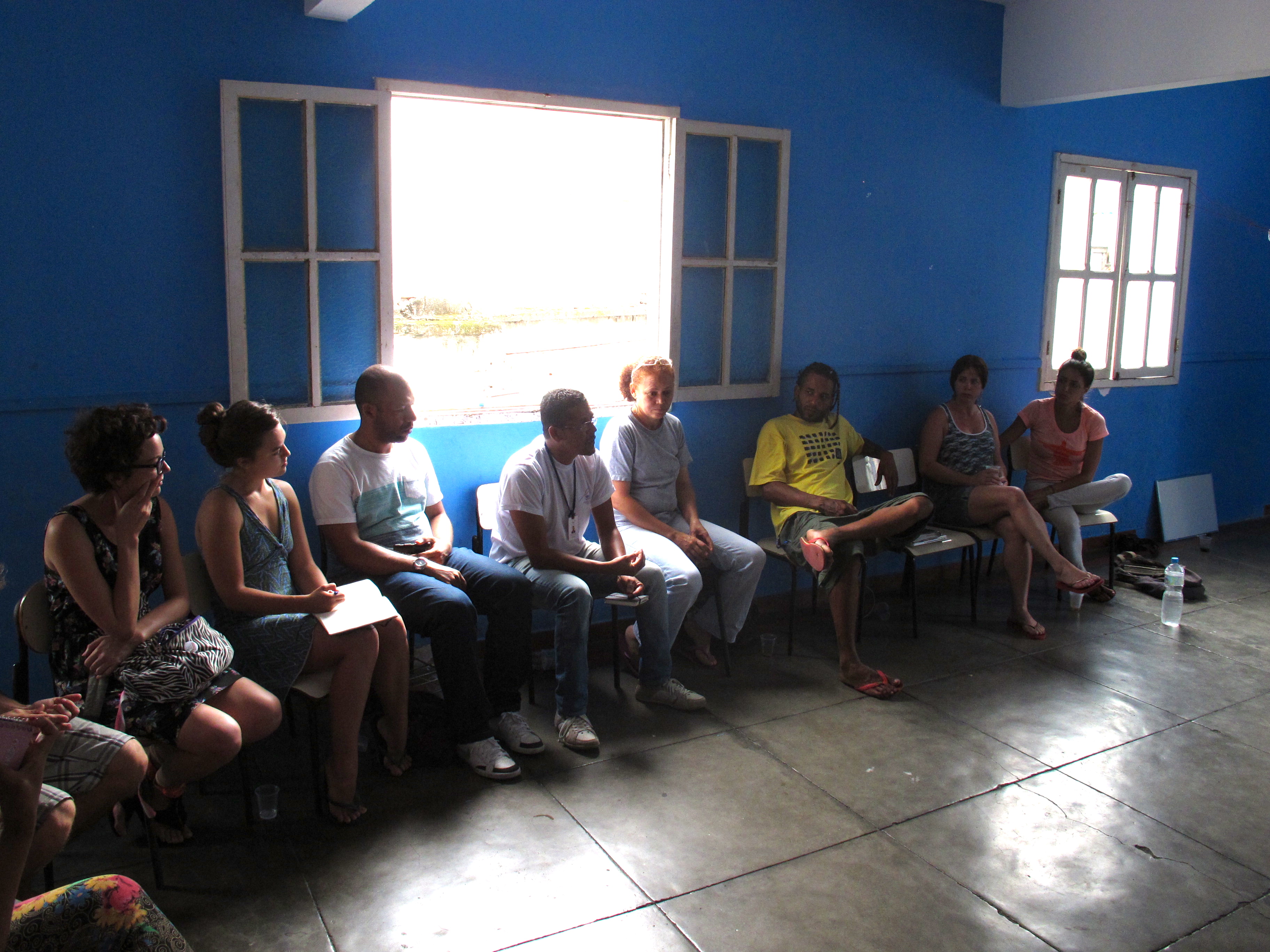 Community Workshops: This year CatComm led a number of impactful community workshops in very different communities, initiating our program which is to expand in 2014. In March and April, CatComm facilitated a series of participatory workshops led by Leonel Ponce, an architect and researcher from the Pratt Institute, to map community concerns and possiblities for a community-based sanitation system. The methods used–transect mapping and ‘city as play’—were documented and made available on our new site’s Toolbox section. Then between September and November we led three workshops on real estate speculation and gentrification in Vidigal, in which CatComm’s team provided insight into the gentrification phenomenon, documented resident assets at risk and concerns about the process underway, and began developing response strategies as part of a long-term support program.
Community Workshops: This year CatComm led a number of impactful community workshops in very different communities, initiating our program which is to expand in 2014. In March and April, CatComm facilitated a series of participatory workshops led by Leonel Ponce, an architect and researcher from the Pratt Institute, to map community concerns and possiblities for a community-based sanitation system. The methods used–transect mapping and ‘city as play’—were documented and made available on our new site’s Toolbox section. Then between September and November we led three workshops on real estate speculation and gentrification in Vidigal, in which CatComm’s team provided insight into the gentrification phenomenon, documented resident assets at risk and concerns about the process underway, and began developing response strategies as part of a long-term support program.
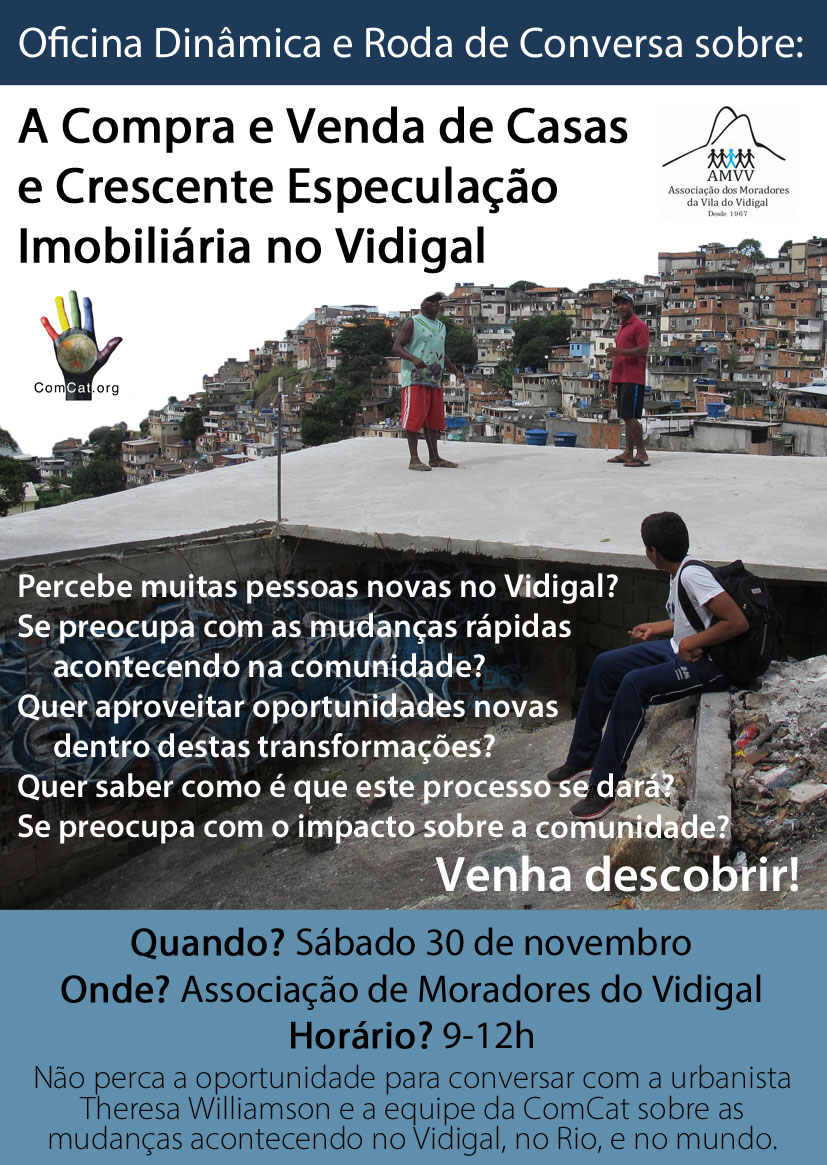 Introducing the Gentrification Debate in Rio: This year the concept of favela gentrification–previously not a word in Portuguese–has gained attention and come under debate. CatComm has been instrumental in leading the debate and raising awareness of this issue with extensive coverage on RioOnWatch, talks by CatComm’s founder and Executive Director Theresa Williamson at influential city debates, Casa Fluminense and OsteRio, on the radio and numerous media outlets, and through our community workshops in Vidigal. Learn more in the highlights on our Annual Report.
Introducing the Gentrification Debate in Rio: This year the concept of favela gentrification–previously not a word in Portuguese–has gained attention and come under debate. CatComm has been instrumental in leading the debate and raising awareness of this issue with extensive coverage on RioOnWatch, talks by CatComm’s founder and Executive Director Theresa Williamson at influential city debates, Casa Fluminense and OsteRio, on the radio and numerous media outlets, and through our community workshops in Vidigal. Learn more in the highlights on our Annual Report.
- University Talks: In October 2013, CatComm’s Executive Director Theresa Williamson gave talks at the following US universities: Carroll University, University of Colorado-Boulder, Columbia University/Studio X, Vassar College, Massachusetts Institute of Technology (MIT), St Joseph’s University, Villanova University, West Chester University, University of Pennsylvania, University of Delaware, Yale University and Georgetown University. Giving talks–on the dynamics of urban change in Rio today; community responses to evictions, gentrification and police violence; and rethinking our assumptions about favelas and sustainable development–Theresa engaged hundreds of college students across the US in the processes underway in Rio and CatComm’s work, recruited new interns and organized educational visits and research with university departments.
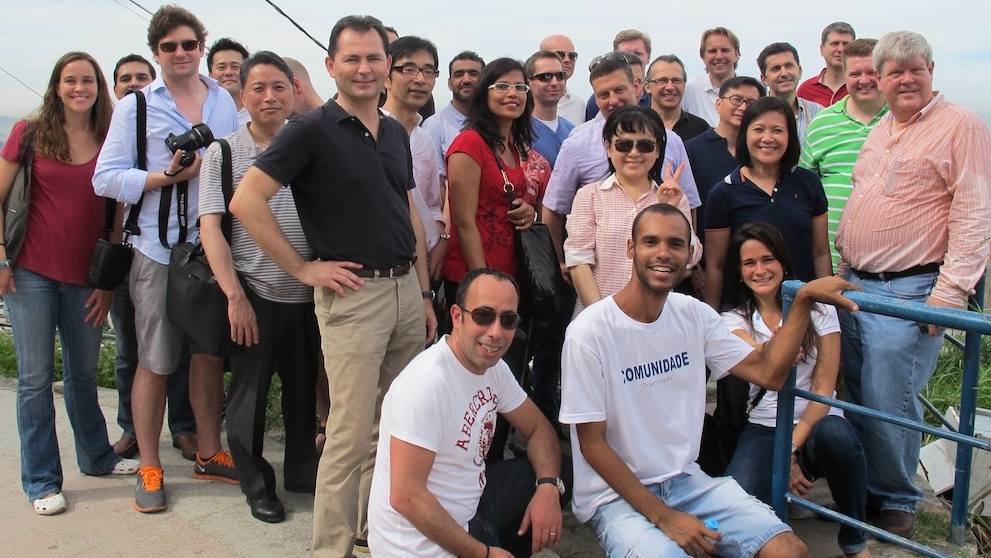 Educational Community Visits: CatComm facilitated 7 educational community visits on behalf of major international universities and learning institutions this year, giving participants a unique, community-led insight into the favela. A highlight of the program was taking a group of 28 corporate executives from 14 countries in Rio as part of an Institute for Management Development training to Vidigal for an immersive visit and workshop at ecological organization Sitiê. As one participant said “The only way to understand how these communities work is to see them firsthand through a hands-on tour like this.”
Educational Community Visits: CatComm facilitated 7 educational community visits on behalf of major international universities and learning institutions this year, giving participants a unique, community-led insight into the favela. A highlight of the program was taking a group of 28 corporate executives from 14 countries in Rio as part of an Institute for Management Development training to Vidigal for an immersive visit and workshop at ecological organization Sitiê. As one participant said “The only way to understand how these communities work is to see them firsthand through a hands-on tour like this.”
- Research: This year CatComm worked with two legal teams from the Vance Center for International Justice preparing two reports, both to be released in early 2014: “Brazil Housing Rights in an International Perspective,” and “Alternative Titling Models for Affordability in Rio’s Favelas.” In addition, CatComm continued monitoring Morar Carioca, publishing research into the program to upgrade Rio’s favelas by 2020 in theory and practice, as well as conducting research on the Minha Casa Minha Vida-Entidades program, which allocates public funding for local organizations to build and administer public housing projects. We supported comparative research released by MIT on Vila Autódromo, leading to an important piece documenting that community’s struggle in Places: The Design Observer (which we translated to Portuguese here). And we supported doctoral and masters researchers from the University of Texas, Harvard University, George Washington University, Pratt Institute, King’s College London, University of Pennsylvania, Oxford University, Ohio State University and UCLA Luskin School of Public Affairs.
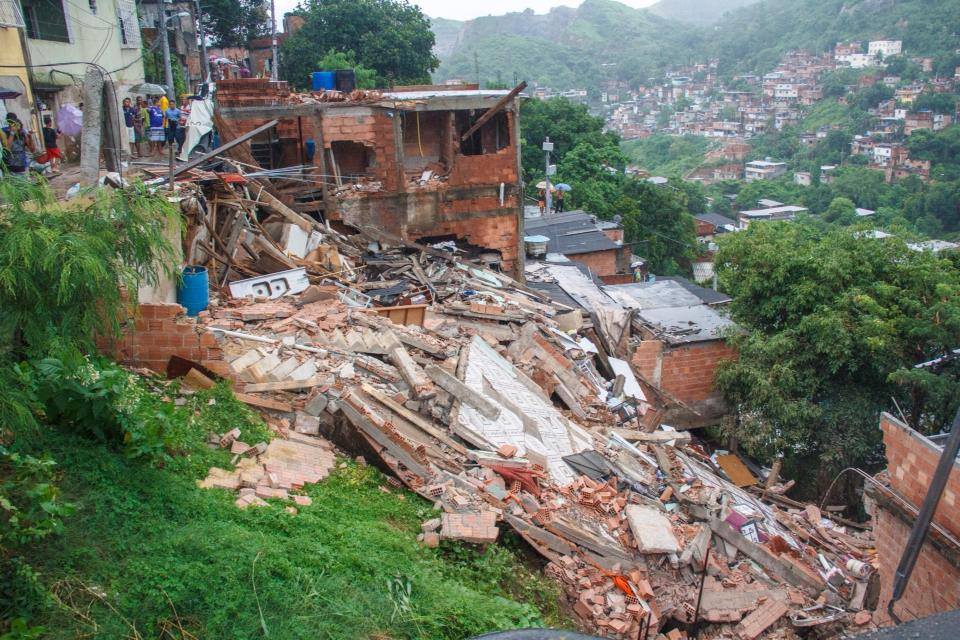 Emergency Appeal: In response to the devastating rains that left 6000 homeless in Rio de Janeiro this December, CatComm held its first emergency appeal, raising $1193 in 48 hours to support families in two of the hardest hit areas: Acari and Complexo do Alemão.
Emergency Appeal: In response to the devastating rains that left 6000 homeless in Rio de Janeiro this December, CatComm held its first emergency appeal, raising $1193 in 48 hours to support families in two of the hardest hit areas: Acari and Complexo do Alemão.
- Organizational Model: In addition to the above examples of our intense activities over the past year, our organizational model is increasingly attracting attention. In May CatComm was selected to participate in this year’s Giving Library nonprofit video series. In September executive director Theresa Williamson was invited to lecture about CatComm’s model of leadership to a group of rising managers within the International Finance Corporation participating in the Mastering Leadership and Management Program. And in November Theresa and CatComm were highlighted in the “A Buddhist Life” column of Tricycle: The Buddhist Review.
Our Plans for 2014:
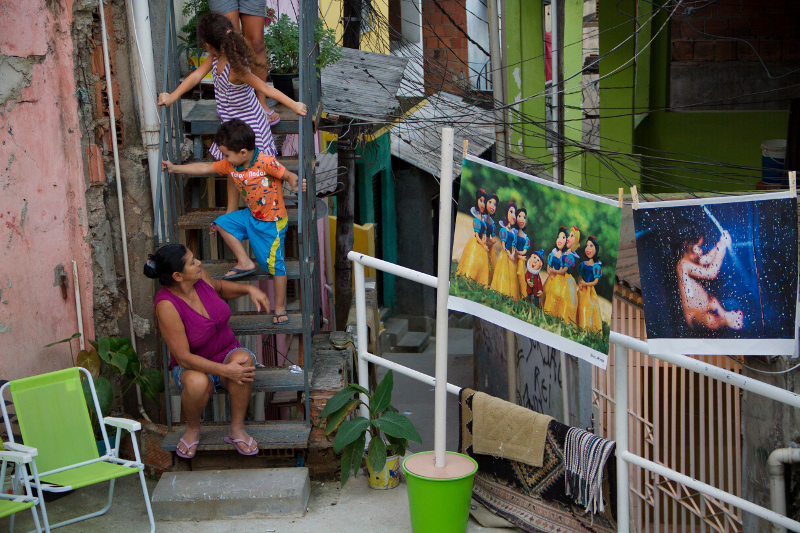
In continuing to apply our multi-year 4-Prong Strategy of (1) Strategic training and networking favela activists with broad networks of support, (2) Broadly communicating the issues and values of the favela based on community perspectives, (3) Developing and proving the value of participatory planning methodologies; and (4) Advocating on behalf of inclusive, integrative and participatory policies; with your continued support in 2014 CatComm will:
- Re-launch RioOnWatch as a full-fledged research tool and news portal.
- Step up our strategic communications work on behalf of favelas as international journalists flock to Rio for the World Cup.
- More strategic workshops for communities about community organizing and participatory planning strategies, and ways to counter the negative effects of gentrification and evictions.
- Develop political advocacy campaigns in the lead up to the gubernatorial elections for inclusive and participatory policies on behalf of communities.
